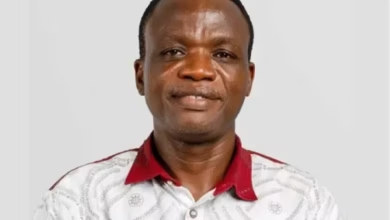Ghanaian editor joins other experts at UNESCO conference on safety of journalists

In a pivotal move to address the growing threats faced by media professionals worldwide, Emmanuel Dogbevi, the Vice President of The African Editors Forum (TAEF), has been invited to join other experts for critical discussions at a landmark global summit, the global commemoration of the International Day to End Impunity for Crimes Against Journalists (IDEI). This high-stakes event, jointly organized by the African Union (AU) and UNESCO, is set to take place on November 6-7, 2024, at the AU headquarters in Addis Ababa, Ethiopia.
Dogbevi, a renowned figure in African journalism, brings a wealth of experience and a unique regional perspective to this crucial dialogue. As the Managing Editor of Ghana Business News and the Executive Director of NewsBridge Africa, he has witnessed firsthand the mounting challenges journalists confront, particularly in conflict-ridden and economically-unstable areas across the continent.
The two-day summit, themed “Safety of Journalists in Crisis and Emergencies,” comes at a time when media professionals are increasingly finding themselves in the crosshairs of conflict and instability. Recent years have seen a disturbing uptick in violence against journalists, with many being targeted, imprisoned, or killed while reporting from the world’s most volatile regions.
“This summit is not just timely, it’s crucial,” Dogbevi stated in an exclusive interview. “We’re seeing an unprecedented level of danger for journalists, particularly in conflict zones. It’s time for concrete action to protect those who risk everything to bring the truth to light.”
During the summit’s first day, Dogbevi is slated to speak on the unique challenges faced by African journalists, who often work in regions plagued by political instability, armed conflicts, and economic hardships. His panel will explore several critical topics, including the impact of regional conflicts on press freedom, strategies for protecting local journalists in high-risk areas, and the role of African media organizations in promoting safety standards.
Dogbevi’s participation underscores the summit’s commitment to amplifying African voices in the global conversation on press freedom and journalist safety. “For too long, Africa has been seen as a recipient of global media policies. This summit allows us to be active participants in crafting solutions that work for our context,” he explained.
One of the key issues Dogbevi plans to address is the growing threat of digital surveillance and online harassment faced by African reporters. He’s expected to discuss the need for enhanced digital security training, the use of encryption tools, and strategies to counter disinformation campaigns that often target investigative journalists.
Recognizing the crucial importance of cross-border support networks, Dogbevi is also likely to propose the establishment of a rapid response system that can quickly mobilize assistance for journalists in danger. This could include legal aid, temporary relocation support, and advocacy campaigns to protect those facing imminent threats.
The second day of the summit, dubbed the “Day of Action,” will see attendees engage in hands-on workshops and strategy sessions. Dogbevi is expected to organise a workshop on developing these rapid response mechanisms for journalists across the African continent.
The choice of Addis Ababa as the venue is significant, highlighting Africa’s growing role in shaping global media policies and practices. Dogbevi sees this as a pivotal opportunity to address longstanding issues and ensure that the unique challenges faced by African journalists are at the forefront of the discussion.
In a groundbreaking move, the summit will also launch a new AU-UNESCO joint fund to support journalists working in high-risk areas. Dogbevi expressed cautious optimism about this initiative, stressing the need for accessibility and effective management to truly benefit those on the ground.
As the world grapples with an increasingly complex geopolitical landscape, the safety of journalists has never been more crucial. This summit, represents a significant step towards creating a global safety net for those who risk their lives to bring us the news.
The outcomes of this summit are expected to reverberate far beyond the halls of the AU headquarters, potentially influencing policy decisions, international laws, and media practices for years to come. As the TAEF Vice President prepares to lend his voice to this crucial dialogue, the hope is that this event will mark a turning point in the ongoing struggle to safeguard those who stand on the front lines of truth and accountability in Africa and beyond.
By Innocent Samuel Appiah





